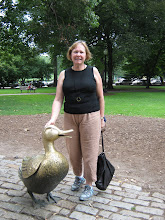 Apparently Pickle Week is celebrated for ten days, not seven during May and it has been since 1948. In Australia children look at you strangely when you talk about 'pickles'. We have gherkins, cucumbers, mustard pickles and dill pickles, but the actual act of 'pickling' is not something many children would have thought about, even though it has been around since the 1300s. I asked a class what it meant to be 'in a pickle' though and surprisingly a couple knew that if you were in a pickle you were in difficulty. They will be ready when they finally read Shakespeare's The Tempest and see this reference!
Apparently Pickle Week is celebrated for ten days, not seven during May and it has been since 1948. In Australia children look at you strangely when you talk about 'pickles'. We have gherkins, cucumbers, mustard pickles and dill pickles, but the actual act of 'pickling' is not something many children would have thought about, even though it has been around since the 1300s. I asked a class what it meant to be 'in a pickle' though and surprisingly a couple knew that if you were in a pickle you were in difficulty. They will be ready when they finally read Shakespeare's The Tempest and see this reference!There are books to read now though...some which actually have the edible 'pickles' as a subject, some where it is used as a character's name and others where someone finds themselves 'in a pickle'. Have fun reading, pickling vegetables and eating pickles for these ten days.





